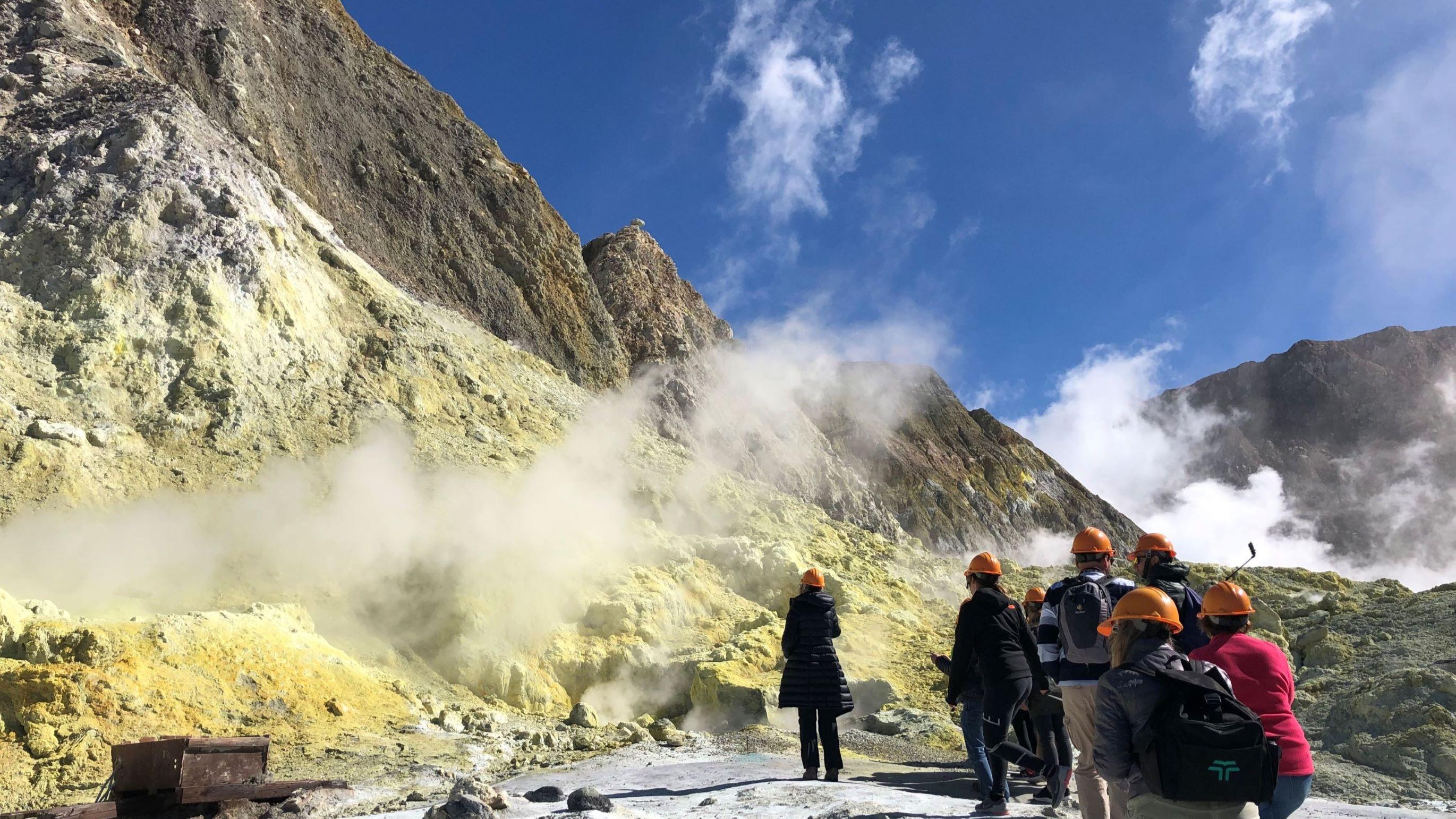
Submitted by Dr C.M. Martin-Jones on Tue, 11/07/2023 - 14:19
Research led by PhD student Olivia Hogg explores how the water content of magma can impact the formation of ore deposits around volcanoes.
The results, published last month in Earth and Planetary Science Letters, show that magma containing more water is most likely to produce the metal-rich fluids essential for ore formation.
Most of the metals we use come from rocks that originally formed around volcanoes. Globally, about 70% of copper is sourced from rocks that make up the roofs of magma chambers. As magma solidifies belowground, a watery soup of salts and metals is produced and slowly moves towards the surface. Metal residues left behind by these migrating fluids go on to form ore deposits that can later be extracted.
Scientists have traditionally had chlorine at the top of their ingredients list for making metal-rich ore deposits from magma. “The community is just starting to recognize the importance of water,” said Hogg, “Our results support emerging research that water-rich magma generates fluids with the highest mass of metals.”
Metals are key to our everyday life —copper, for instance, is used to make essential components in electrical equipment. With the switch to clean technologies like solar and wind, and the need for batteries to store green energy, the demand on metals is soaring — driving scientists to improve how they locate high-grade ore deposits. “One of the steps in this search is understanding how these ores form, so we can better anticipate where to find them,” said Hogg.
Hogg’s research involved building a database containing the chemical compositions of magmatic fluids and volcanic gases. She then developed a model to predict the chemistry of the brines produced by the cooling and crystallisation of these volcanic rocks. Her next step is to investigate how the presence of sulfur in magmatic fluids can influence the range of metals that form in ore deposits.
Last year, she and Prof Jon Blundy from Oxford’s Department of Earth Sciences wrote an article in the Geoscientist Magazine on the potential for volcanic brines to fill the demand for sustainably-sourced metals. Their research was recently covered in the Guardian. “Mining these brines directly, by tapping into the source deep beneath the volcano could be a greener method to meet the demand for metals required by net zero targets,” said Hogg.
Olivia is a committee member of Women in Mining and is head of their University Student Chapters, which advocates and speaks for women in the mining sector.
Read her new paper: Hogg, O. R., Edmonds, M., & Blundy, J. (2023). Water-rich magmas optimise volcanic chalcophile element outgassing fluxes. Earth and Planetary Science Letters, 611, 118153.

